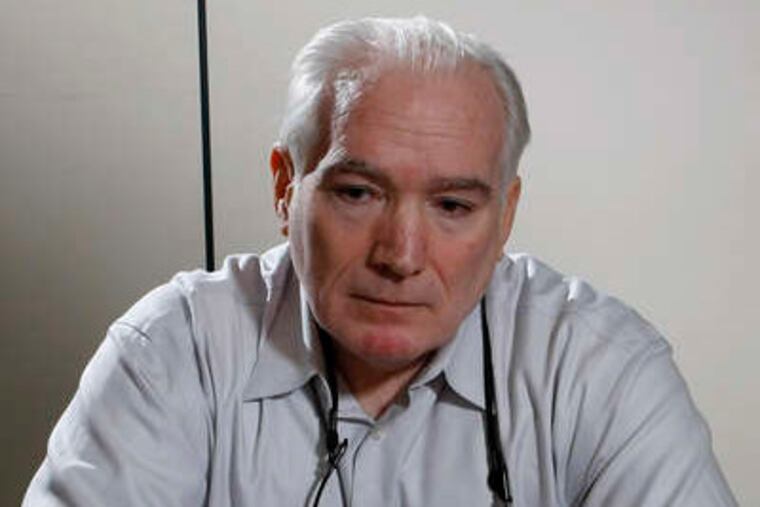Teamster brothers differ on Hostess deal
By the time brothers Robert and Joe Ryder meet for Thanksgiving, it'll be a moot question whether the unions should have caved into management demands from Hostess Brands Inc., makers of Twinkies and Wonder Bread.

By the time brothers Robert and Joe Ryder meet for Thanksgiving, it'll be a moot question whether the unions should have caved into management demands from Hostess Brands Inc., makers of Twinkies and Wonder Bread.
In bankruptcy twice in a decade, the company said Friday it would shut down, putting 18,500 people out of work, including more than 400 in the Philadelphia area.
Despite its financial issues, the company blamed the bakers' union, saying it refused to return from a strike and make the necessary concessions to allow the company to survive.
Robert and Joe Ryder's union, the International Brotherhood of Teamsters, wrestled with the same question - and the two brothers, both leaders in the same Philadelphia-area local, took opposing points of view.
Joe Ryder, 55, a vice president at Local 463, agreed with the concessions, albeit reluctantly. Robert Ryder, 54, head of the union, disagreed, saying it would hurt Teamsters at other bakeries.
As it turned out, the national union went Joe Ryder's way, with Teamsters working at Hostess voting 53 percent to 47 percent to accept the cuts. Local 463, which represents 130 drivers and others at Hostess' Philadelphia plant, voted the same way.
It's been a long time since the two men, now union leaders with desk jobs, drove trucks, but the philosophies they represent reveal the hard choices workers must make in tough economies.
"Don't try to paint a picture that we don't see eye to eye," Joe Ryder pleaded. There won't be any problem when the two brothers show up at their mother's home on Thursday.
Robert Ryder said he didn't agree with accepting the concessions. "I think the concessions are diluting the other contracts," he said. "When you let an employer have an 8 percent wage reduction, [make members pay] $76 toward health coverage and no pension [contributions], I advocated that they not vote for it.
"It would be a matter of time before they close anyway," Robert Ryder said. "You can't just keep fixing the company [by making the workers take cuts]."
Joe Ryder worked with the Teamsters' national Hostess strategy group. He came to think the concessions were the only choice, with the outside hope of buying the company some time.
"Nobody thought that Hostess was ever going to recover, but the Teamsters looked at their books," he said. "We brought in the same restructuring specialist used in the General Motor restructuring. We had shared sacrifice and we got two seats on the [Hostess] board as part of the negotiations."
Even the Teamsters who had voted against the concessions "started to understand that the job they had was better than any other job" available in today's tough economy.
Last week, as a result of their decision, the Teamsters wound up in the awkward situation of having to cross picket lines. Robert Ryder didn't like that idea. He called his higher-ups to complain.
Robert Ryder said his brother helped come up with the workaround used at the Philadelphia Hostess plant to avoid having the Teamsters cross the bakers' picket line. Managers trucked the Wonder Bread and Ho Ho's to the Wal-Mart parking lot across the street and the Teamsters took it from there.
"It does create an awkward situation," said Stephen Joyce, a labor economist at Drexel University.
To Joyce, the Teamsters' strategy looked like a future-play: "Whoever buys it," Joyce said, "[the Teamsters] want to be remembered as the heroes who tried to work things out."